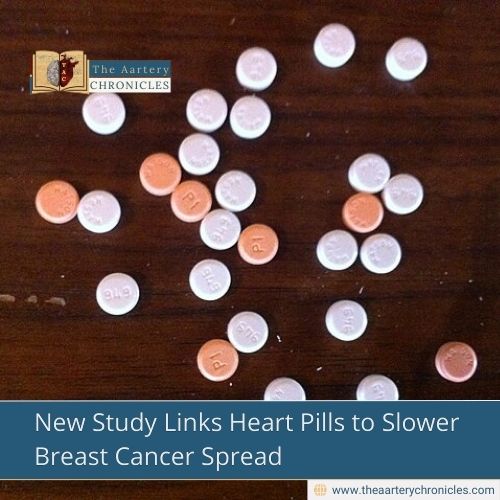

New Study Links Heart Pills to Slower Breast Cancer Spread
A new study has revealed that beta blockers and breast cancer may have a surprising connection. Widely used to control high blood pressure, beta blockers could also help protect women against one of the most dangerous types of breast cancer, triple-negative breast cancer (TNBC). This finding offers hope for a low-cost treatment option that could save lives.
Why Triple-Negative Breast Cancer Is So Challenging
Breast cancer remains the most common cancer in women in the United States. In 2025, experts estimate nearly 317,000 women will be diagnosed, and more than 42,000 will lose their lives to the disease.
Among all breast cancer types, triple-negative breast cancer is one of the most aggressive. Unlike other breast cancers, TNBC does not respond to hormone therapies such as estrogen or progesterone treatments. It tends to grow faster, spread quicker, and leaves patients with limited treatment options.
The Role of Beta Blockers in Cancer Progression
Researchers at Monash University in Melbourne discovered that beta blockers commonly prescribed to lower blood pressure and manage stress may also slow down the growth of TNBC.
The team found that stress hormones, such as cortisol, trigger a receptor called beta-2 adrenoceptor, which fuels tumour growth by activating two signalling molecules, cAMP and calcium. However, when beta blockers are introduced, they disrupt this harmful chain reaction.
The Breakthrough Discovery: The HOXC12 Gene
The study, published in Science Signalling, revealed a deeper mechanism. Beta blockers were shown to “switch off” a gene known as HOXC12, which drives the spread of TNBC. By silencing this gene, beta blockers may effectively slow down or even prevent cancer progression.
Professor Michelle Halls, senior author of the study, explained:
“We now have a much better understanding of why beta blockers are linked to reduced mortality in triple-negative breast cancer patients.”
Co-author and PhD candidate Terrance Lam added that high levels of HOXC12 are associated with poorer outcomes, making the gene a potential marker to identify which patients could benefit most from beta-blocker therapy.
What This Means for Patients
The findings suggest that testing for HOXC12 levels at diagnosis could help doctors determine whether a patient is likely to respond to beta-blocker treatment. Since these medications are already widely available and inexpensive, they could become a valuable addition to breast cancer care.
Still, experts stress the need for further clinical studies to confirm how best to use beta blockers in cancer treatment.
Conclusion
While more research is needed, the link between beta blockers and breast cancer offers a promising new avenue for treatment. With their affordability and safety record, beta blockers could one day help reduce deaths from one of the toughest forms of breast cancer.
Source: Inputs from various media Sources
I’m a pharmacist with a strong background in health sciences. I hold a BSc from Delhi University and a pharmacy degree from PDM University. I write articles and daily health news while interviewing doctors to bring you the latest insights. In my free time, you’ll find me at the gym or lost in a sci-fi novel.
- Priya Bairagi
- Health News and Updates,People Forum
- 22 August 2025
- 22:00








